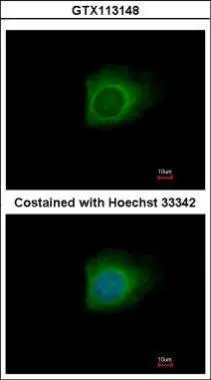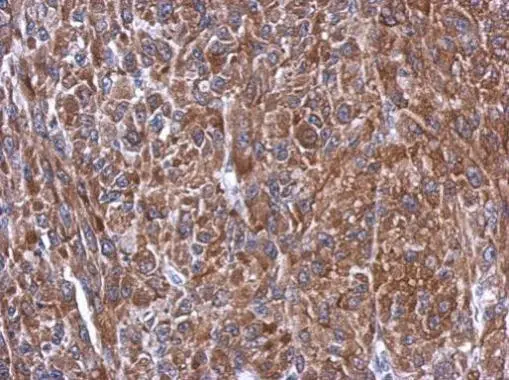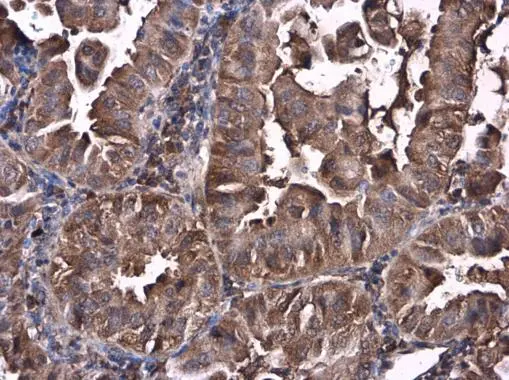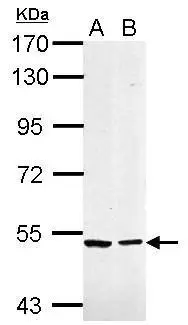
Immunofluorescence analysis of methanol-fixed HeLa, using Caspase 10(GTX113148) antibody at 1:500 dilution.
Caspase 10 antibody
GTX113148
ApplicationsImmunoFluorescence, Western Blot, ImmunoCytoChemistry, ImmunoHistoChemistry, ImmunoHistoChemistry Paraffin
Product group Antibodies
ReactivityHuman
TargetCASP10
Overview
- SupplierGeneTex
- Product NameCaspase 10 antibody
- Delivery Days Customer9
- Application Supplier NoteWB: 1:500-1:3000. ICC/IF: 1:100-1:1000. IHC-P: 1:100-1:1000. *Optimal dilutions/concentrations should be determined by the researcher.Not tested in other applications.
- ApplicationsImmunoFluorescence, Western Blot, ImmunoCytoChemistry, ImmunoHistoChemistry, ImmunoHistoChemistry Paraffin
- CertificationResearch Use Only
- ClonalityPolyclonal
- Concentration1 mg/ml
- ConjugateUnconjugated
- Gene ID843
- Target nameCASP10
- Target descriptioncaspase 10
- Target synonymsALPS2, FLICE-2, FLICE2, MCH4, caspase-10, CASP-10, FADD-like ICE2, FAS-associated death domain protein interleukin-1B-converting enzyme 2, ICE-like apoptotic protease 4, apoptotic protease MCH-4, caspase 10 apoptosis-related cysteine peptidase, caspase 10, apoptosis-related cysteine protease, interleukin-1B-converting enzyme 2
- HostRabbit
- IsotypeIgG
- Protein IDQ92851
- Protein NameCaspase-10
- Scientific DescriptionThis gene encodes a protein which is a member of the cysteine-aspartic acid protease (caspase) family. Sequential activation of caspases plays a central role in the execution-phase of cell apoptosis. Caspases exist as inactive proenzymes which undergo proteolytic processing at conserved aspartic residues to produce two subunits, large and small, that dimerize to form the active enzyme. This protein cleaves and activates caspases 3 and 7, and the protein itself is processed by caspase 8. Mutations in this gene are associated with apoptosis defects seen in type II autoimmune lymphoproliferative syndrome. Three alternatively spliced transcript variants encoding different isoforms have been described for this gene. [provided by RefSeq]
- ReactivityHuman
- Storage Instruction-20°C or -80°C,2°C to 8°C
- UNSPSC41116161









